Chemistry Lab for Process Engineering
Objective of the lab is to provide practical knowledge on Physical, Organic and Inorganic Chemistry which play a critical role in Process Engineering. This lab gives a good idea about various quality control techniques which have applications in many of the process industries.
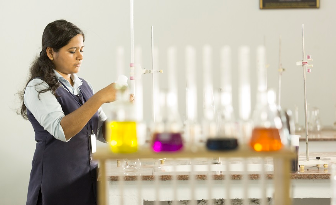
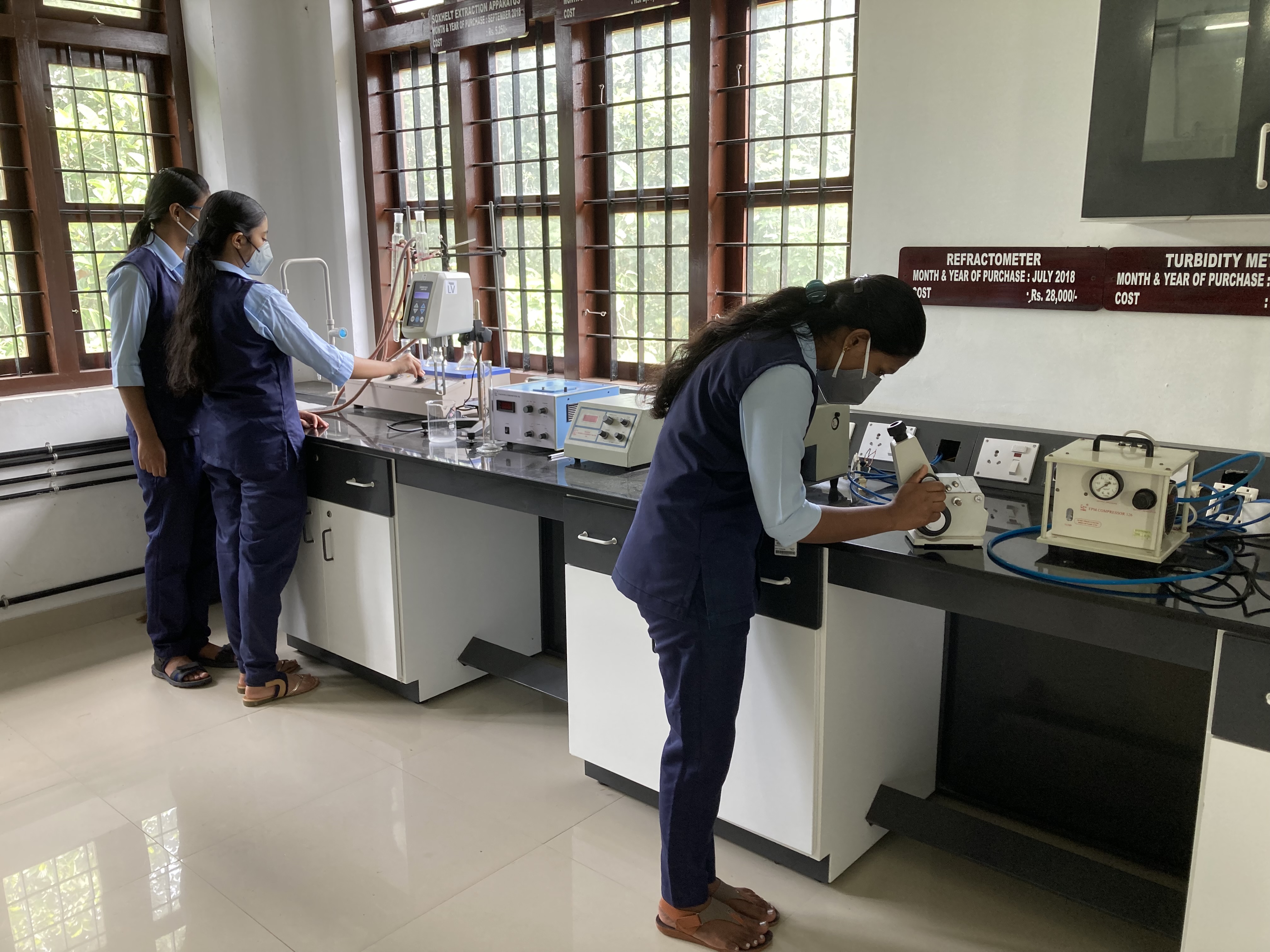
Chemical Technology & Environmental Engineering Lab
The Lab is facilitated with instruments to provide practical knowledge on the analysis of different chemical and environmental samples. Students can get the exposure to design and create environmentally benign chemical processes. This laboratory includes research equipment to help the students to address critical issues pertaining to environmental sustainability.
Equipment available in the lab: BOD incubator, Brookfield viscometer, Fluorimeter, Gas calorimeter, Refractometer, Turbidity meter, UV-Visible spectrophotometer, Multiparameter measuring system, Soxhelt extraction equipment and Flame photometer.
Particle Technology Lab
Experiments involved in Particle Technology Lab are associated with the handling and processing of particulate solids which form the major components of production processes like Cement, Fertilizer, Paint and Pharmaceuticals, etc.
The list of equipment available in the laboratory for size reduction and size separation operations are Hammer mill, Plate and frame filter press, Leaf filter, Cyclone separator, Froth floatation cell, Sedimentation unit, Fluidized bed apparatus, Rotary sieve shaker, Gyratory sieve shaker, Sieve set, Basket centrifuge, Jaw crusher, and Ball mill.
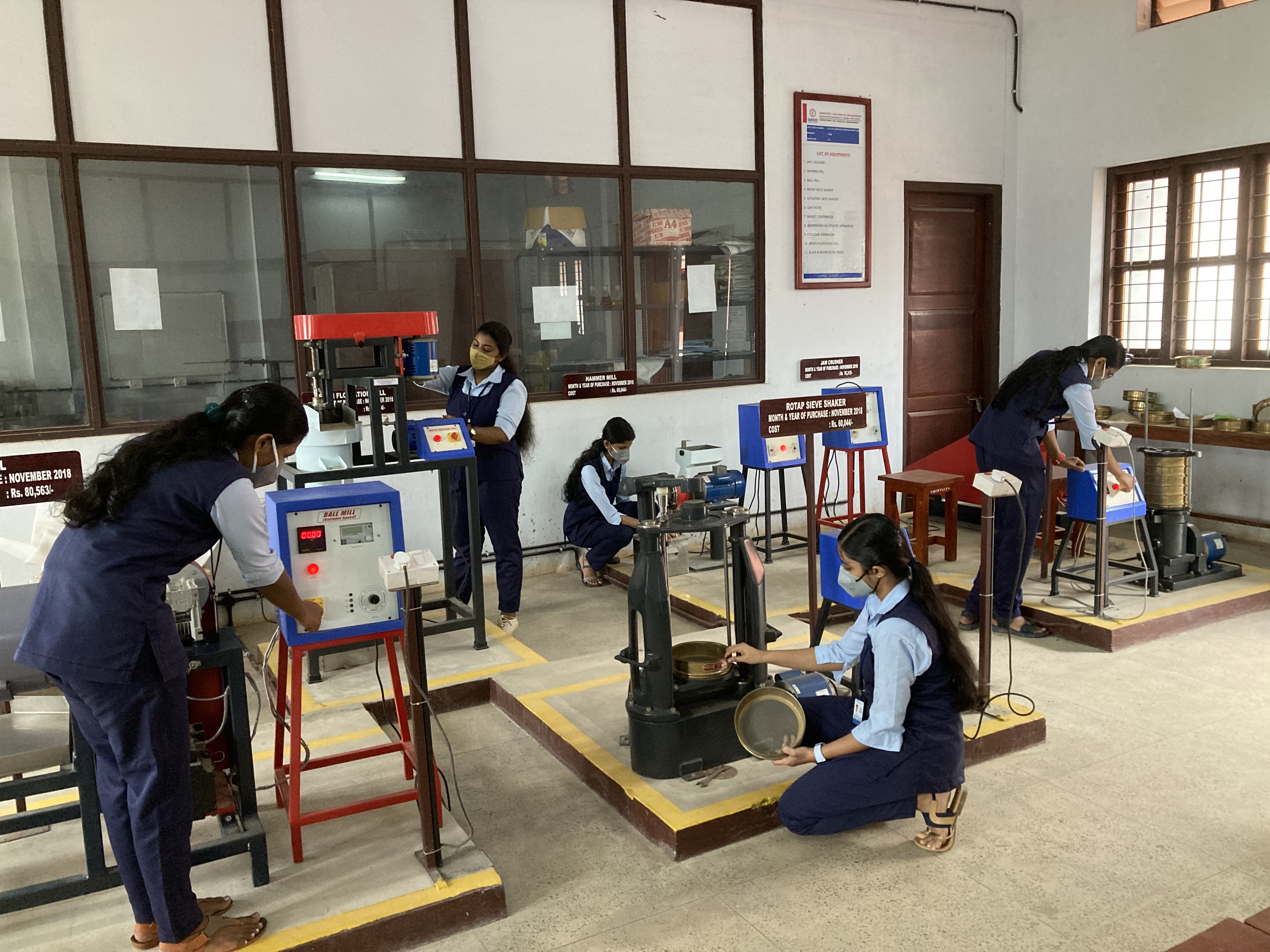
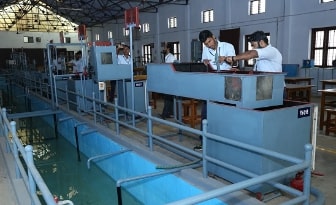
Fluid & Particles Mechanics Lab
Storage, handling and transportation of fluids and particles play a vital role in any process industry. Hence, the Fluid and Particles Mechanics Lab is very important in the Chemical Engineering curriculum. The laboratory is equipped with sophisticated units for determining the pressure drop, friction factor through the system, power required for pumping and measurement of the flow rates during the fluid transportation.
Chemical Reaction Engineering Lab
Objective of the Chemical Reaction Engineering Lab is to provide the necessary practical knowledge on the reaction rate under various thermodynamic and reactor operating conditions for optimum reactor design. This lab gives a good idea about the Reaction Engineering principles that they have studied in the curriculum.
List of equipment in the lab: Isothermal batch reactor, Isothermal plug flow reactor, Isothermal continuous stirred tank reactor, Packed bed reactor, Packed bed reactor for RTD studies, Plug flow reactor for RTD studies, Continuous stirred tank reactor for RTD studies, Combined CSTR-PFR, Annular UV photo reactor and Solid dissolution study apparatus.
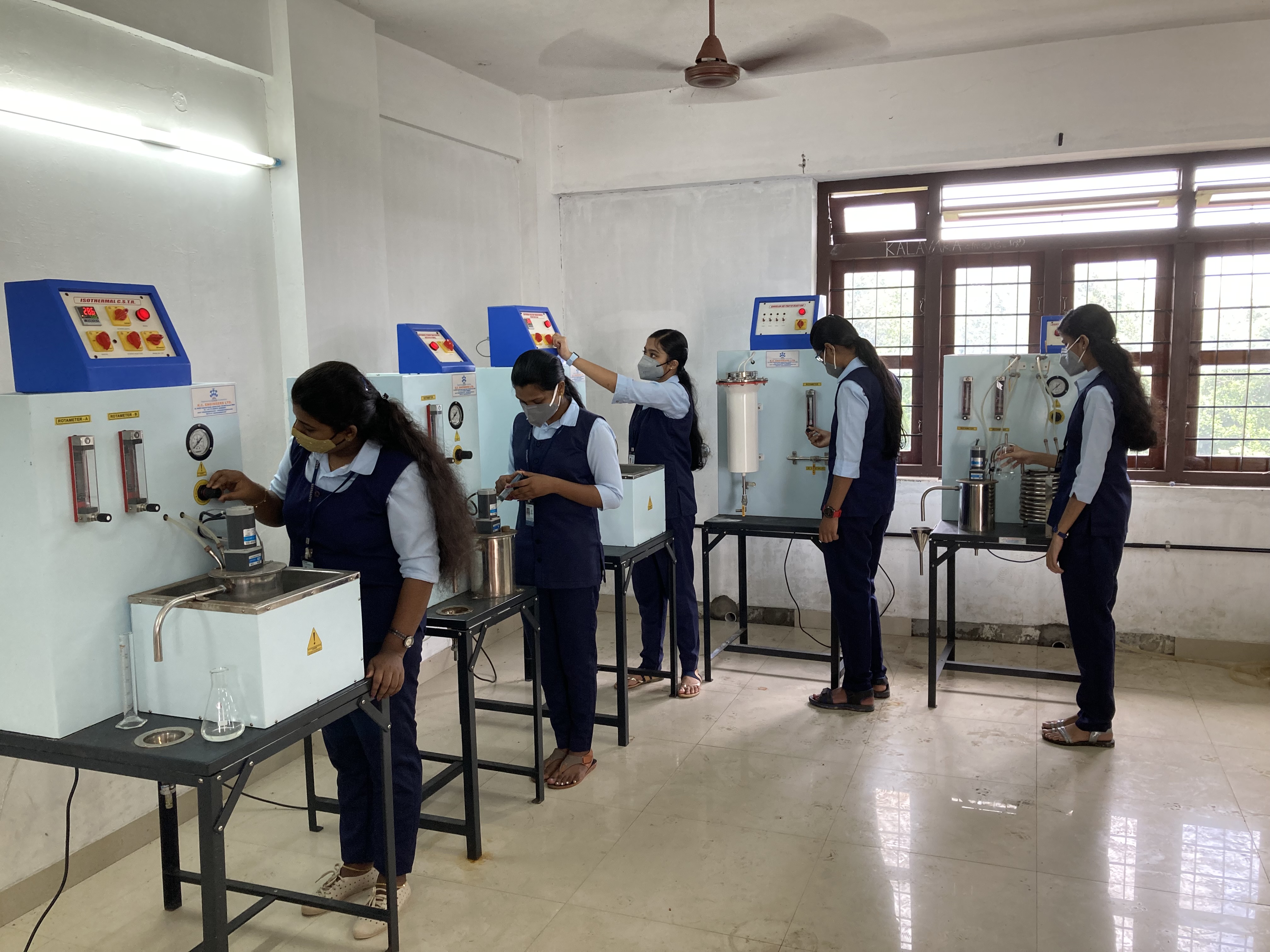
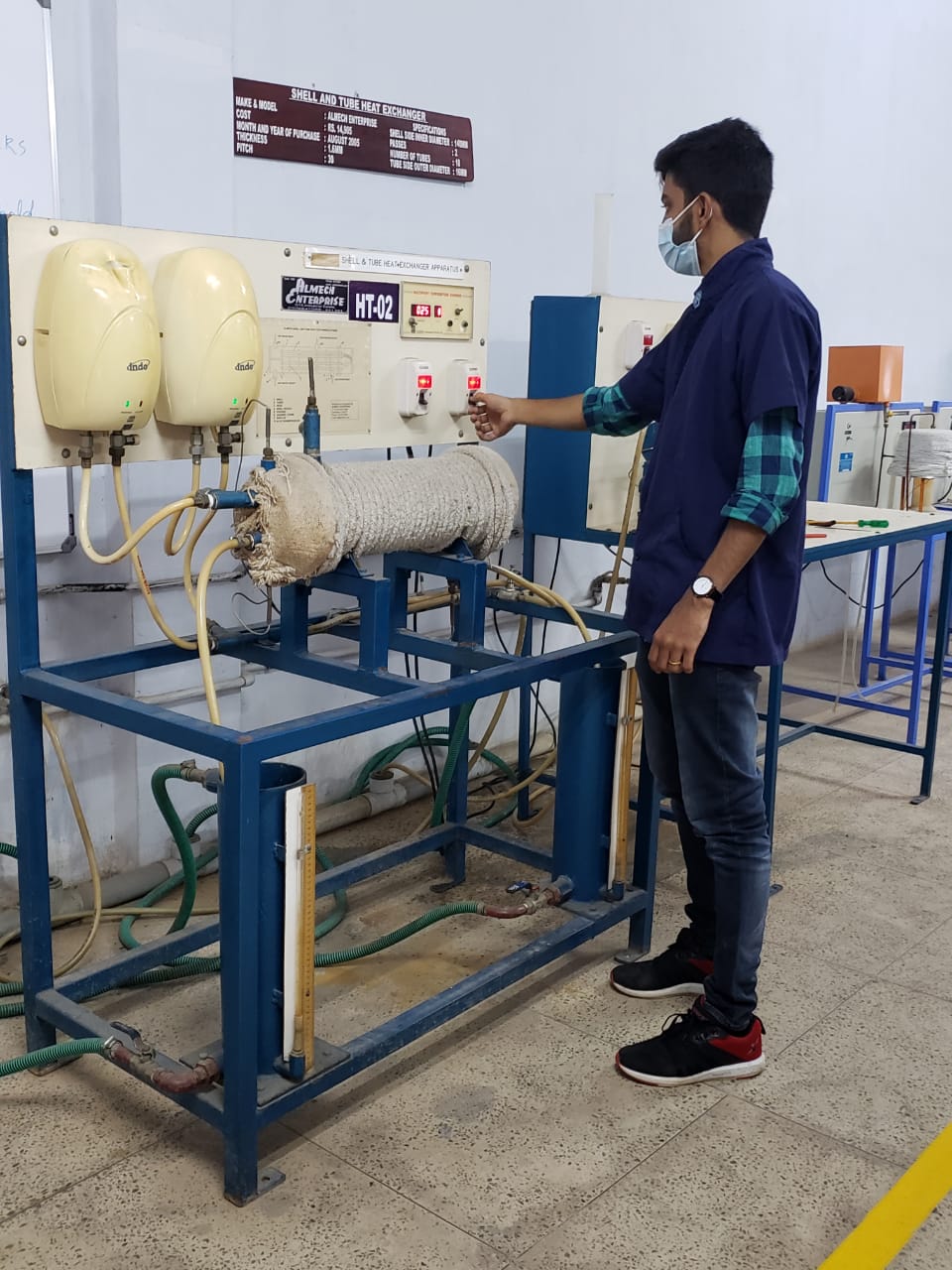
Heat Transfer Operations Lab
Heat Transfer Operations Lab is very important in the Chemical Engineering curriculum. The lab provides fundamental and industrial knowledge about the three basic modes of heat transfer – conduction, convection and radiation, and their applications. Many of the concepts and theories which the student learn in the lectures of heat transfer, thermodynamics and fluid mechanics are demonstrated and confirmed through different experiments.
List of equipment in the lab: Double pipe heat exchanger, Shell and tube heat exchanger, Forced convection apparatus, Natural convection apparatus, Pin fin apparatus, Composite wall apparatus, Stefan-Boltzmann apparatus, and Thermal conductivity apparatus.
Mass Transfer Operations Lab
Mass transfer operations play a critical role in many of the process industries. The objective of the lab is to provide an understanding of the fundamental concepts and practical aspects of interphase mass transfer to the students. Experimental studies equip the students with the necessary input for the design/operation of complex equipment for mass transfer operations like absorption, distillation, extraction, leaching, adsorption, etc.
Equipment available in the lab: Wetted wall column apparatus, Steam distillation apparatus, Absorption in packed column apparatus, Vapour in air diffusion apparatus, Simple distillation apparatus and Rotary shaker.
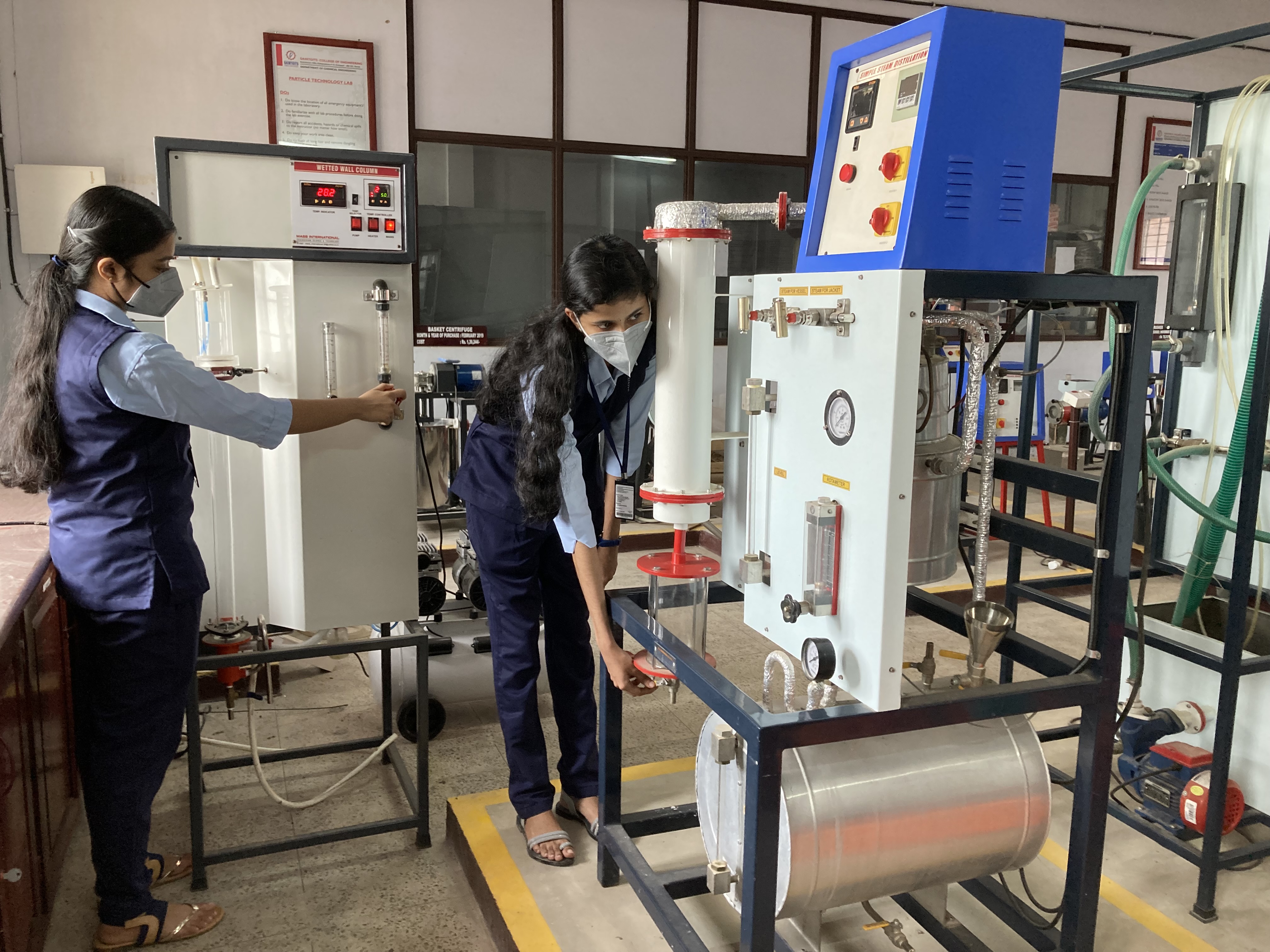
Programming & Process Simulation Lab
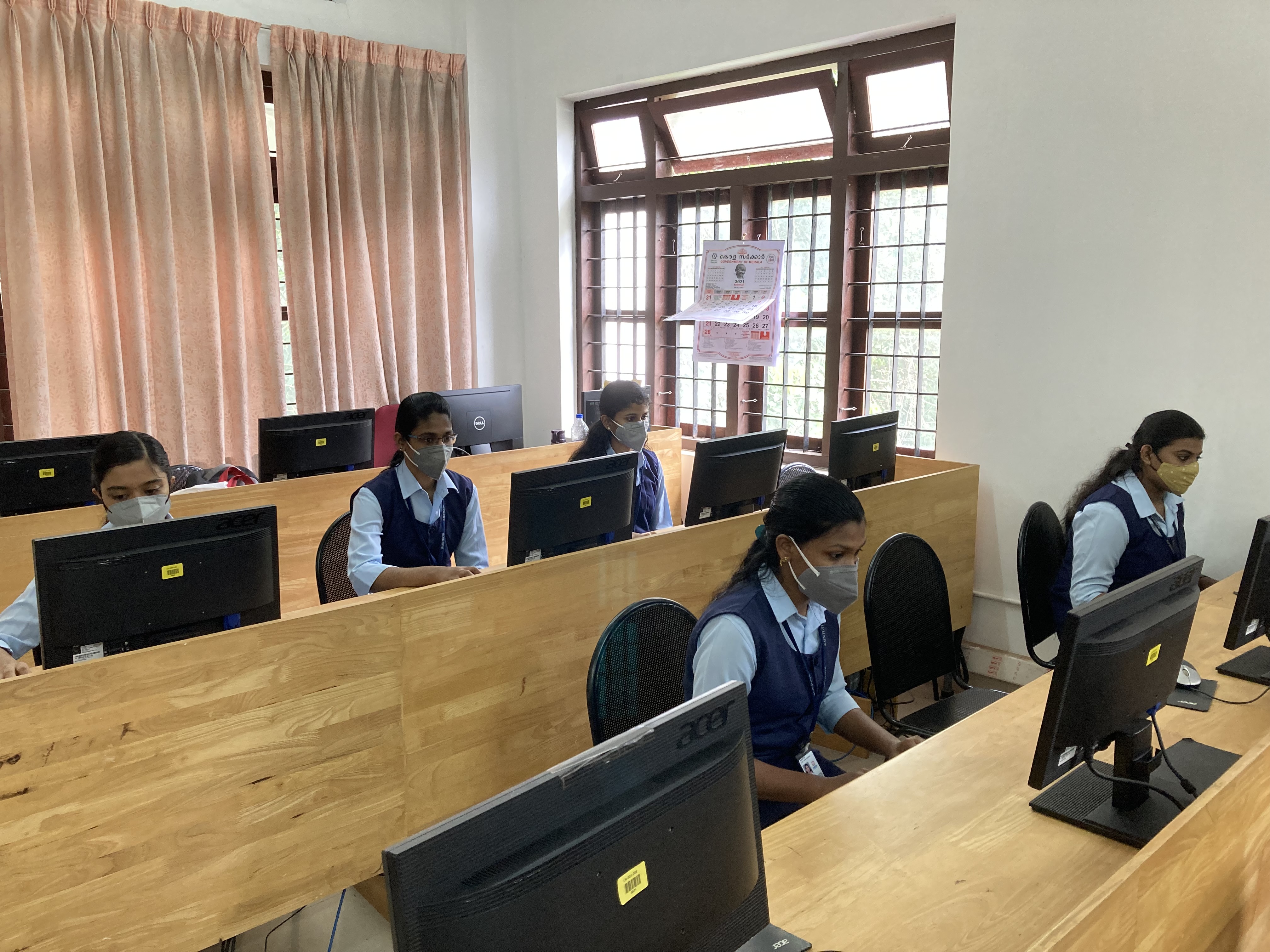
The lab aims to familiarize the students with the modern software tools and packages for the design, monitoring and control of chemical processes. A chemical plant involves large amount of complex material and energy balances, which can be at steady or unsteady state and may or may not involve chemical reactions. These calculations can be solved using simulation software such as Aspen, which are widely used and accepted by industries. In the process simulation lab the students are trained to solve various industrially relevant plant operations in Aspen. The design of a chemical industry involves estimation of thermodynamic properties of various fluids and generation of phase equilibrium data, which are generated using Matlab software at the simulation lab. Estimation of properties and solution of phase equilibrium problems often involve complicated mathematical equations which are solved using various numerical techniques. Students are trained to develop algorithms and C++ codes to solve the problems using various numerical techniques.
Process Control Lab
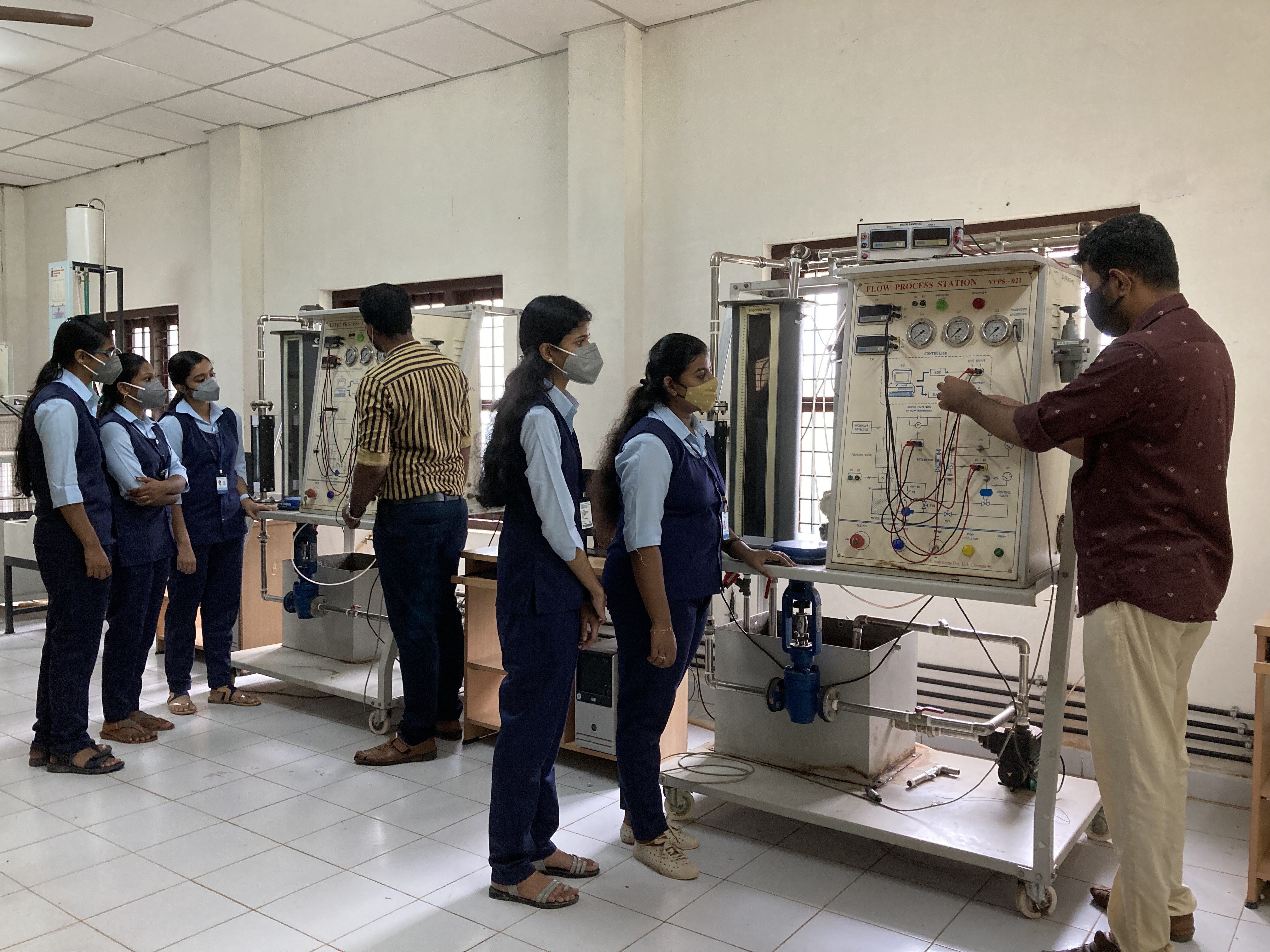
The lab aims to provide practical knowledge on basic control modes (P, PI & PID), working principles of various control valves and the dynamics of various systems. The control systems include one Engineering Station and Multiple Operator Stations for human machine interfaces which will help to create a real time process industry environment.
Equipment available in the lab: Two tank interacting system & non-interacting system, Dynamics of thermometer, Dynamics of thermocouple, Dynamics of thermometer with thermowell, Pressure control trainer, Level control trainer, and Flow control trainer.
